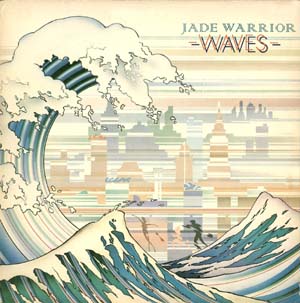
The fictional world in which the A Song of Ice and Fire novels by George R. R. Martin take place is divided into several continents, known collectively as The Known World.

The Chinese dragon or loong is a legendary creature in Chinese mythology, Chinese folklore, and Chinese culture generally. Chinese dragons have many animal-like forms, such as turtles and fish, but are most commonly depicted as snake-like with four legs. Academicians have identified four reliable theories on the origin of the Chinese dragon: snakes, Chinese alligators, thunder worship and nature worship. They traditionally symbolize potent and auspicious powers, particularly control over water and weather.

Jon Anderson is a British and American singer, songwriter and musician, best known as the former lead singer of the progressive rock band Yes, which he formed in 1968 with bassist Chris Squire. Renowned for his alto tenor range, he was a member of the band across three tenures until 2004, and was also the singer of the Yes-linked projects Anderson Bruford Wakeman Howe and Yes Featuring Jon Anderson, Trevor Rabin, Rick Wakeman. Anderson became an American citizen in 2009 with dual citizenship.
Unit 4 + 2 were a British pop band formed in Hertfordshire, England, who had a number one hit on the UK Singles Chart in 1965 with the song "Concrete and Clay". The track topped the UK chart for one week.

Robert David "Lu" Edmonds is an English rock and folk musician. He is currently, as of 2018, a vocalist and saz and cümbüş player in the Mekons and the guitarist for Public Image Ltd. Edmonds reportedly plays electric guitar, bass guitar, keyboards, bouzouki, saz, cümbüs, oud, and drums, among other instruments.
Patrick Campbell-Lyons, is an Irish composer and musician who is one half of the cult symphonic-rock band, Nirvana, formed in London in 1967.

Mount Huaguo or Flowers and Fruit Mountain, is a major area featured in the novel Journey to the West. A number of real-world locations have been connected with the Mount Huaguo, although the eponymous mountain in Lianyungang, Jiangsu is most commonly identified as its source of inspiration.

"Sunsets" is a song released as the third single from Australian rock band Powderfinger's fifth studio album, Vulture Street. The single was released in January 2004. "Sunsets" earned a mixed response from reviewers. Some reviewers praised its appeal and aggression, while others appreciated the power ballad elements within it. Others, however, described the song negatively as "lumbering". "Sunsets" charted moderately, reaching No. 11 on the Australian Singles Chart.

Jade Warrior were a British progressive rock band formed in 1970, originally evolving out of a band named July. The founder members were Tony Duhig (guitar), Jon Field and Glyn Havard. David Duhig, the younger brother of Tony Duhig, played on several of Jade Warrior's albums and in every live gig Jade Warrior ever performed - apart from the reunion concert of 2008. He died 1st December 2021.

Now is the fourteenth studio album by British band Jade Warrior. Released on 30 June 2008 on the WindWeaver label, it comes after a 15-year gap since their previous album, Distant Echoes.

Bad Man's River is a 1971 Italian/Spanish/French international co-production comedy Spaghetti Western directed by Eugenio Martín and starring Lee Van Cleef, James Mason, Gina Lollobrigida, Sergio Fantoni, Simón Andreu and Lone Fleming, the director's then wife. Soundtrack was composed by Tony Duhig, Jon Field, Glyn Havard and Waldo de los Ríos.

Last Autumn's Dream is the third studio album by British band Jade Warrior. The album, released in 1972, yielded two singles, "A Winter's Tale" and "The Demon Trucker".

Jade Warrior is the debut self-titled and self-produced album by Jade Warrior, released in 1971 as part of the progressive rock movement. The album sets the scene for what the majority of the band's albums were to sound like, mixing various ethnic sounds with a progressive and otherworldly sound, as well as sudden changes between slow acoustic guitar melody, to distorted and heavy electric guitar with a faster tempo.
July are a psychedelic rock band from Ealing, London that was professionally active between 1968 and 1969, and reformed in 2009. The band's music was a blend of psychedelic rock and psychedelic pop, marked by lush harmonies, acoustic guitars, keyboards, and intricate lead guitar work. Although none of the band's records charted in the UK or the U.S., July are today best remembered for their songs "My Clown", "Dandelion Seeds", and "The Way", which have all been included on a number of compilation albums over the years.

Floating World is the fourth studio album by the British experimental rock band Jade Warrior released in 1974 by Island Records. The band's experiments with the sounds which would later be labelled as world and ambient music came parallel to that of Brian Eno, who described Floating World as an 'important album'.

Waves is the fifth studio album by British progressive/experimental rock band Jade Warrior released in 1975 by Island Records. The album, written, recorded and produced by Jon Field and Tony Duhig with guest musicians consisted of one single composition which in the pre-CD days had to be divided into two parts to fit A and B sides.

Kites is the sixth studio album by British progressive/experimental rock band Jade Warrior released in 1976 by Island Records. Kites, more layered and complex than Waves, the duo's previous outing, took nine months to record.

Zimbabwe is an album by afro-rock band Assagai. Their second and final release, it was recorded at Nova Sound Studios in London for Vertigo Records, but was instead issued by Philips Records in 1971. The album features saxophonists Dudu Pukwana, Bizo Mngqikana, and Fred Fredericks, trumpeter Mongezi Feza, vocalist Martha Mdenge, drummer Louis Moholo, percussionists Terri Quaye and Smiley De Jonnes, and members of the progressive rock group Jade Warrior, who also contributed three compositions. Cover art was provided by Roger Dean, best known for his work with bands such as Yes, Asia, and Uriah Heep. In 1975, the album was reissued by the Music for Pleasure label with the title Afrorock.















